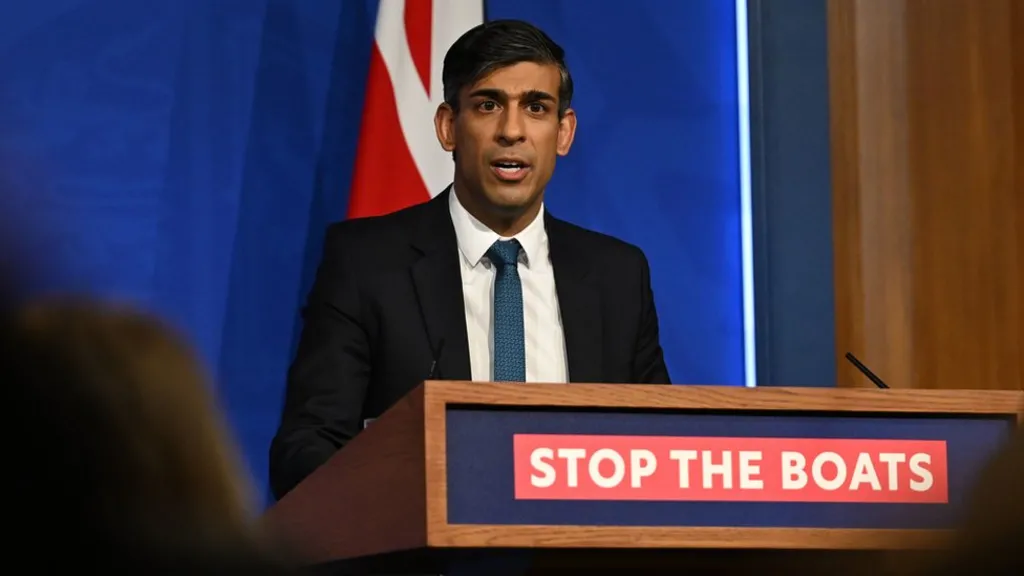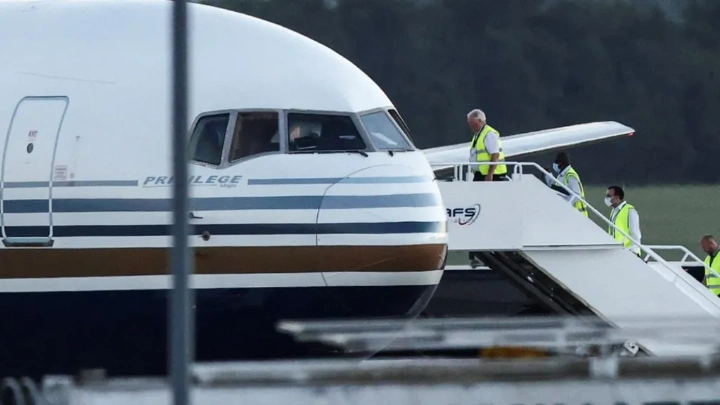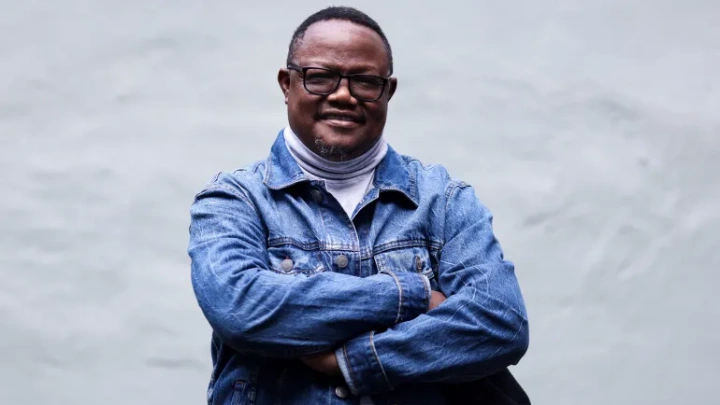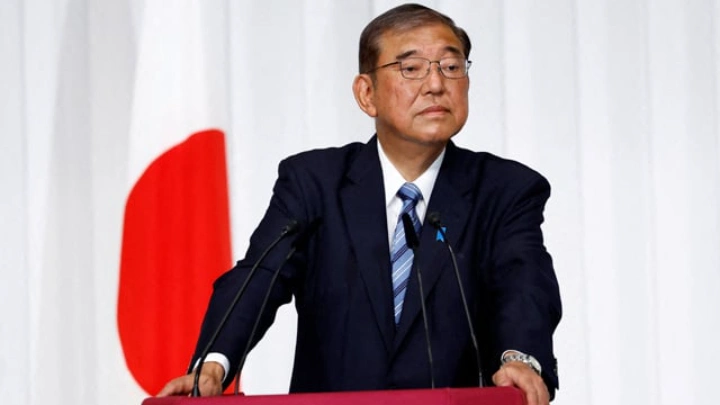Rwanda bill: Some peers' objections are patronising, says minister
BBC || Shining BD
Objections to the government's flagship Rwanda Bill by some peers are "patronising" and "border on racism", the deputy foreign secretary has said.
The House of Lords has been pushing for a change to the bill that would establish a committee to monitor the safety of asylum seekers in Rwanda.
Andrew Mitchell called on peers to step aside and accept the government's bill.
There has been a prolonged stand-off over the law between the two Houses of Parliament over the past four months.
The prime minister has promised to keep MPs and Lords late into the night on Monday to pass the bill.
It has already been approved by MPs on several occasions - most recently last Wednesday - only for amendments to be added in the House of Lords.
One, which would establish a monitoring committee operating separately from the country's own judiciary, mandates that flights should not take off without its approval.
But Mr Mitchell, the senior Foreign Office official in the Commons, praised Rwanda's judicial independence, highlighting Chief Justice Judge Rugege "an enormously distinguished and respected international jurist".
Speaking on BBC Radio 4's Today programme, he said: "Some of the discussions that have gone on in the Lords about the judicial arrangements, the legal arrangements within Rwanda, have been patronising and in my view border on racism."
Last week, peers also backed an amendment that would exempt asylum seekers from Afghanistan, who had previously assisted British troops when the military was stationed there, from being among those forced to fly out to Rwanda.
Peers want their two amendments added to the bill before they will ratify it, which is required before the government can pass it into law. MPs will vote on the bill and its amendments from the Lords on Monday afternoon.
This ping pong between the two Houses of Parliament could go on until either the government concedes and makes concessions, or peers give up on their suggested amendments.
Prime Minister Rishi Sunak is expected to say that his teams in the Commons and Lords will press ahead, at a news conference shortly.
On Friday the PM said there would be no more delays, adding: "We will sit there and vote until it's done."
The legislation would drastically limit the grounds for legal challenges to the government's scheme to fly asylum seekers to Rwanda.
It would also make it easier to remove asylum seekers who have arrived in the UK by illegal means.
'Safer than London'
Mr Mitchell said the regime in Rwanda had made a "remarkable" turnaround over the last 30 years after nearly being "completely destroyed by the genocide".
"Kigali is arguably safer than London," he said.
"It is time for the Lords, which is a revising chamber, to accept the will of the elected chamber," he added.
Lord Carlile, a member of the House of Lords who opposes the Rwanda plan, told BBC Radio 4's Today programme he and his fellow peers would "keep going as long as necessary" and not back down over their amendments.
He said Rwanda had "not yet complied with the treaty" it signed with the UK, referring to the UK-Rwanda treaty signed in December.
The treaty is central to the government's plan, but is separate to the Rwanda Safety Bill. It was drafted in response to the Supreme Court ruling that the scheme was unlawful - and aims to ensure further protections for asylum seekers.
Home Secretary James Cleverly has previously said the treaty would ensure people relocated to Rwanda are not at risk of being returned to a country where their life or freedom would be threatened.
'As long as necessary'
The Safety of Rwanda Bill is central to Mr Sunak's plans to "stop the boats" - arguing the scheme would acts as a effective deterrent for people who cross the Channel in small boats.
Effectively, the legislation would drastically limit the grounds for legal challenges to the Rwanda scheme and it gives ministers the power to disregard some human rights law.
The scheme was first introduced on 14 April 2022 by then-prime minister Boris Johnson, but no asylum seeker has yet been sent to Rwanda - a landlocked country in central Africa - 4,000 miles (6,500km) from the UK.

The first flight was scheduled to go in June 2022, but was cancelled after legal challenges.
Further obstruction came in November 2023, when the UK Supreme Court ruled unanimously that the Rwanda scheme was unlawful.
After the Supreme Court ruling, the government introduced then this Safety of Rwanda bill as "emergency legislation", which aims to make clear in UK law that Rwanda is a safe country.
Critics say the scheme will put people at risk, and the legislation undermines the independence of the courts.
Former home secretary Suella Braverman told the Today programme the bill had "too many loopholes" which would prevent it from having the "deterrent effect that is necessary to break the people smuggling gangs".
And she said it was vulnerable to "last-minute injunctions" by the European Court of Human Rights, adding: "The simple fact is this is our third act of Parliament that the government has introduced in four years to stop the boats."
Shining BD






















